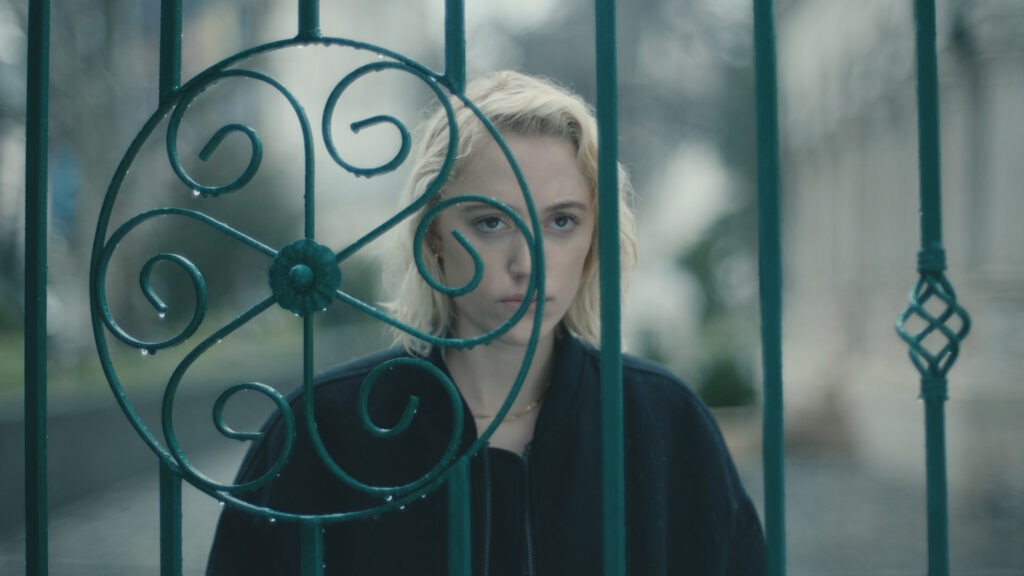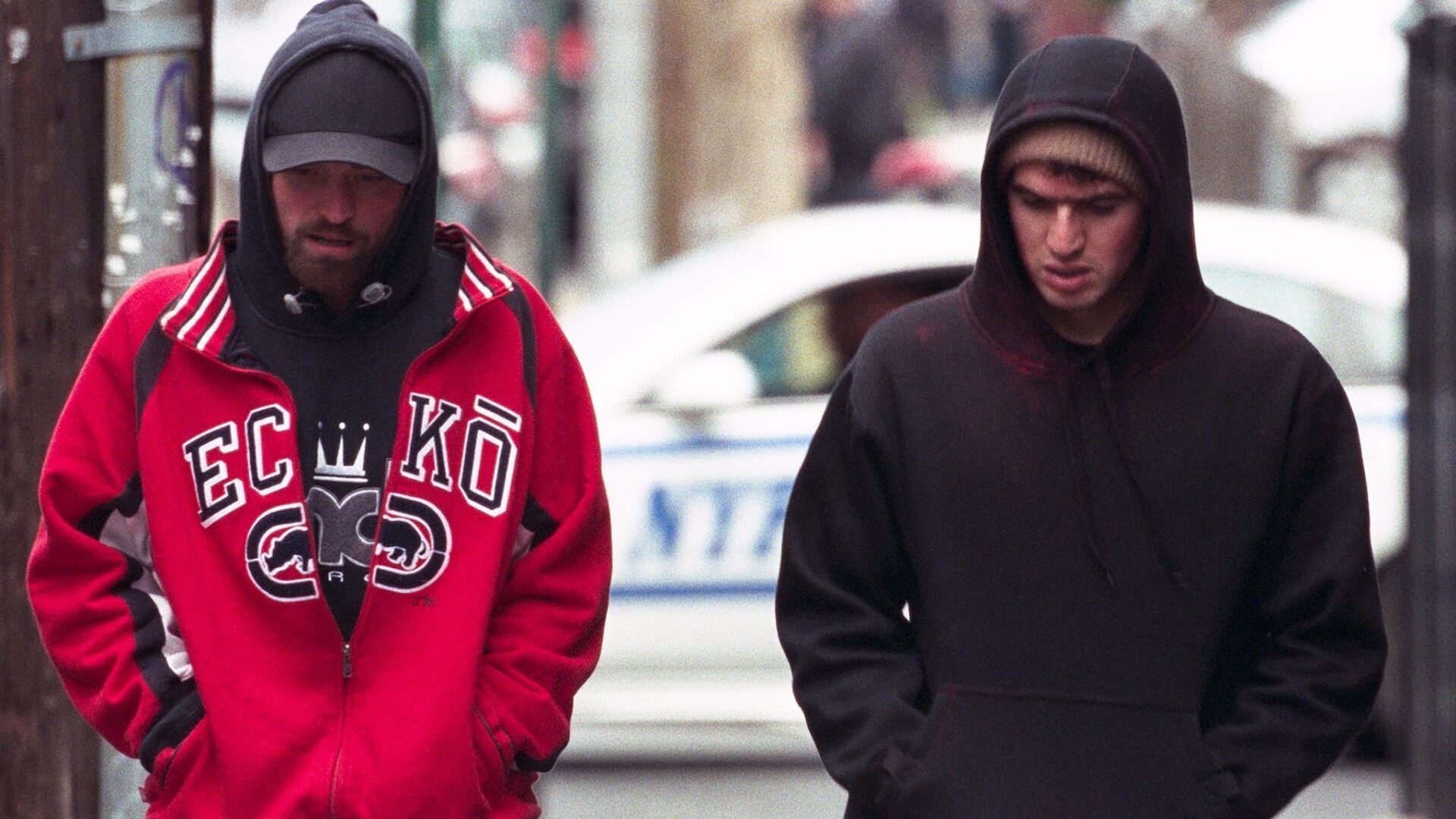Even the very beginning of Watcher has an ominous tone to it. After receiving a promotion from his marketing firm, Julia (Maika Monroe) agrees to relocate to Bucharest with her husband, Francis (Karl Glusman). Their new apartment is plush with space and has enormous windows where you can peer into the other building across the street. The couple expresses optimism about their new home and even seals it with a passionate embrace — but the camera backs away in a wide-angle like an intrusionist onlooker. A theme that first-time director Chloe Okuno allows to marinate throughout the film’s run time. There’s seldom a moment where our main protagonist or the audience feels comfortable. Even a slight reprieve of tranquility is instantly blunted with a bout of anxiety. It’s one thing to be alone in a foreign country — but to be in a new place where you can’t pinpoint a possible murderous stalker is another.
When Julia and Frances go out one night, they see an ambulance surrounded by townspeople. Upon going back to their apartment, they find out a serial killer named “The Spider” on the loose, and the scene they passed was one of his victims. Unfortunately, the killer’s targets were all women — from there, Okuno and co-writer Zack Ford plants seeds of paranoia into her mind. Francis goes to work, and Julia is left to her own devices to explore the town. On her excavations, she notices things — first, there’s a shadowy figure of a person starting into her apartment. When Julia goes out, she feels that someone follows her every move — even in places like the movie theater or the grocery store.
But the uneasy feeling of unknown piercing eyes isn’t the only thing weighing on Julia’s psyche. Towering buildings, dark windows, and the overall damp color of the Romanian landscape act as tiny, inadvertent antagonists slowly converging on any instance of relaxation Julia has. Before the move, Julia was an aspiring actress — now she’s left to search for a new identity in a place that seems to want to swallow her whole. Because of the language barrier, Francis is the only person who can interpret things for her, but with friends, he carries on conversations in his native language. In that instance, Julia is an outsider in every sense of the word — even in her own home. She’s a person who desperately wants to be seen in a place where the lack of connection drowns out her voice.
The only kindred spirit for Julia is a neighbor named Irina (Madalina Anea), whose ex-boyfriend beckons for another chance at her door nightly — probably one of the few places she gains comfort. As her nervosity mounts with each day, Francis and a lone cop shrug off her feelings entirely. Okuno places the audience in a woman’s shoes, where the males in the story do not take her fears seriously. Even if some tropes are homages to movies like Rear Window, Monroe carries her performance, invoking a balance of emotions. Julia has every reason to feel unsafe, but she’s also determined not to become a potential victim. There’s a suspect in mind, but Okuno directs your attention to multiple things to make the audience slightly doubt what they’re seeing.
Being uprooted from the way of life you’ve known can be jarring for anyone. This is more so for a woman who perceives a threat and has nothing to anchor for safety, but herself. Watcher should feel very familiar, especially if you’re a fan of a Hitchcock-like methodical way of storytelling. But, given a satisfying twist in the finale, Okuno makes the film a poignant commentary on believability.
Photo Credit: Courtesy of Sundance Institute













